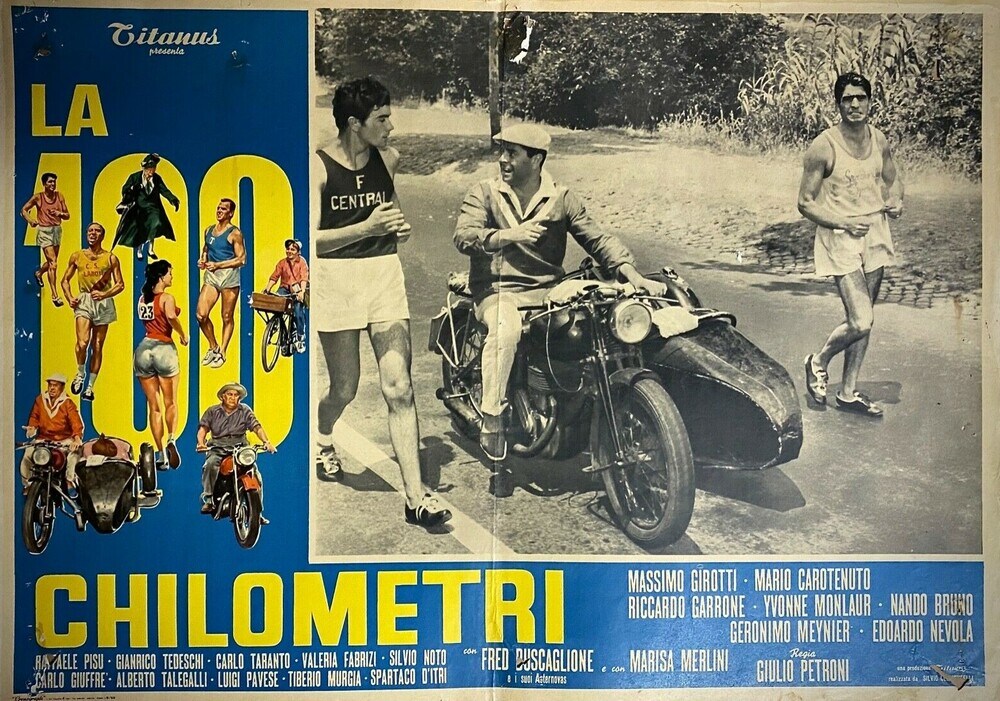La cento chilometri isn’t so much a film based on a strong plot, but rather a delightful anthology of short stories. It was one of the first films to use such a structure, with the various stories that feature in the film taking place over the course of a walking race on the streets of Rome. The originality of this premise (it is one of the very few films to feature a walking race) is due to the excellent screenplay by Pasquale Festa Campanile, Massimo Franciosa and Giulio Petroni. Petroni, here also making his debut behind the camera, will go on to be mainly remembered for his important contribution to the development of the Italian western. In contrast with the effort put into the race, the stories are told in an easy-going manner, with a combination of funny and paradoxical events, a lively pace, and an entertaining and varied group of actors (famous names, character actors and relative unknowns). There are also sentimental tones found throughout the film, as well as surprising political swipes. The great Fred Buscaglione provides musical relief.
A long race serves as the backdrop to intertwining stories and characters. Here are some of them: Cesare hopes to win first prize so that he can pay off the carpenter who is threatening to take away his bed (at the end of the race, he discovers that he is the father of five twins); Corsetti, an overweight lawyer, takes part in the race after losing a bet; ex-champion Toccaceli is on his way out, but doesn’t want his son to consider him finished; Stefano and Elena meet during the race and it’s love at first sight.
La cento chilometri isn’t so much a film based on a strong plot, but rather a delightful anthology of short stories. It was one of the first films to use such a structure, with the various stories that feature in the film taking place over the course of a walking race on the streets of Rome. The originality of this premise (it is one of the very few films to feature a walking race) is due to the excellent screenplay by Pasquale Festa Campanile, Massimo Franciosa and Giulio Petroni. Petroni, here also making his debut behind the camera, will go on to be mainly remembered for his important contribution to the development of the Italian western. In contrast with the effort put into the race, the stories are told in an easy-going manner, with a combination of funny and paradoxical events, a lively pace, and an entertaining and varied group of actors (famous names, character actors and relative unknowns). There are also sentimental tones found throughout the film, as well as surprising political swipes. The great Fred Buscaglione provides musical relief.
A long race serves as the backdrop to intertwining stories and characters. Here are some of them: Cesare hopes to win first prize so that he can pay off the carpenter who is threatening to take away his bed (at the end of the race, he discovers that he is the father of five twins); Corsetti, an overweight lawyer, takes part in the race after losing a bet; ex-champion Toccaceli is on his way out, but doesn’t want his son to consider him finished; Stefano and Elena meet during the race and it’s love at first sight.
